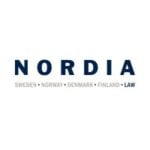-
What are the key financial crime offences applicable to companies and their directors and officers? (E.g. Fraud, money laundering, false accounting, tax evasion, market abuse, corruption, sanctions.) Please explain the governing laws or regulations.
The fundamental law regulating criminal offences in the Republic of Croatia is the Criminal Code of the Republic of Croatia (“Official Gazette” Nos. 125/11, 144/12, 56/15, 61/15, 101/17, 118/18, 126/19, 84/21, 114/22, 114/23, 36/24, hereinafter: Criminal Code).
Criminal offences in the area of financial crime applicable to companies and their directors and managers are prescribed in the Criminal Code, namely in:
- Chapter Twenty-Three (XXIII.) – criminal offences against property,
- Chapter Twenty-Four (XXIV.) – criminal offences against the economy,
- Chapter Twenty-Six (XXVI.) – criminal offences of forgery, and
- Chapter Twenty-Eight (XXVIII.) – criminal offences against official duty.
In this context, financial crime includes the following criminal offences:
Tax evasion (Article 232), embezzlement (Article 233), fraud (Article 236), misuse of cheques and payment cards (Article 234), abuse of trust (Article 240), infringement of others’ rights (Article 241), abuse of trust in economic transactions (Article 246), fraud in economic transactions (Article 247), breach of the obligation to keep commercial and business books (Article 248), causing bankruptcy (Article 249), preferential treatment of creditors (Article 250), accepting and giving bribes in bankruptcy proceedings (Article 251), accepting bribes in economic transactions (Article 252), giving bribes in economic transactions (Article 253), abuse in public procurement procedures (Article 254), misleading advertising (Article 255), tax or customs evasion (Article 256), avoiding customs supervision (Article 257), subsidy fraud (Article 258), abuse of insider information (Article 259), abuse of the capital market (Article 260), unauthorized use of another’s company name (Article 261), disclosure and unauthorized acquisition of business secrets (Article 262), unlawful production (Article 263), unlawful trade (Article 264), money laundering (Article 265), forgery of official or business documents (Article 279), abuse of position and authority (Article 291), unlawful favouring (Article 292), receiving bribes (Article 293), giving bribes (Article 294), trading in influence (Article 295), giving bribes for trading in influence (Article 295).
-
Can corporates be held criminally liable? If yes, how is this determined/attributed?
In the Republic of Croatia, legal persons can be held criminally liable. The liability of legal persons for committing criminal offences is regulated by the Act on the Liability of Legal Persons for Criminal Offences (“Official Gazette” Nos. 151/03, 110/07, 45/11, 143/12, 114/22, 114/23, hereinafter: ZOPOKD).
The ZOPOKD defines the prerequisites for punishability, penalties, security measures, confiscation of pecuniary gain, confiscation of objects, public publication of the judgment, statute of limitations, and criminal procedure for the criminal offences of legal persons.
A legal person shall be punished for a criminal offence committed by a responsible person if such an act violates a duty of the legal person or if the legal person has gained or was supposed to gain a benefit for itself or another.
Furthermore, a legal person shall also be punished for a criminal offence committed by a responsible person to whom activities within the scope of the legal person were entrusted, if the offence occurred due to a failure in supervision or control by the responsible person managing the affairs of the legal person.
A “responsible person” under ZOPOKD is a natural person who manages the affairs of the legal person or is entrusted with performing tasks within its scope of activity at any level.
The ZOPOKD prescribes that criminal proceedings against a legal person are joined with proceedings against the responsible natural person – the primary accused – for the same criminal offence. This ensures a unified criminal procedure ending with a single judgment (Articles 5 and 23).
However, this does not mean that the responsible natural person will always automatically be held criminally liable together with the legal person. In line with Council of Europe Recommendation No. R (88) 18, the law allows criminal proceedings against a legal person even when there are actual or legal impediments to prosecuting the natural person. Such circumstances include death, inability to stand trial, immunity, amnesty, or pardon.
It is particularly important to highlight cases where the responsible person is unknown. According to Article 2 para. 3 of the Criminal Procedure Act (“Official Gazette” Nos. 152/08, 76/09, 80/11, 121/11 – official consolidated text, 91/12, 143/12, 56/13, 145/13, 152/14, 70/17, 126/19, 126/19, 80/22, 36/24, 72/25, hereinafter: Criminal Procedure Act) criminal proceedings against a legal person may be initiated even in such cases – if there is a reasonable suspicion that a certain (though unidentified) natural person committed a criminal offence that violated a duty of the legal person or by which it gained (or was to gain) unlawful pecuniary benefit for itself or another.
On the other hand, a legal person may avoid criminal prosecution even when all conditions for prosecution are met. This occurs when it has no assets or its assets are so insignificant that they cannot cover the costs of the criminal proceedings, or if bankruptcy proceedings are being conducted against it (Article 24).
In such cases, the state attorney decides to dismiss the criminal complaint or refrain from prosecution based on the principle of expediency. Moreover, a legal person may avoid punishment if it reports the criminal offence committed by its responsible person before it is discovered or before it becomes aware that the offence has already been discovered. In such a case, the court may exempt it from punishment (Article 12.a).
-
What are the commonly prosecuted offences personally applicable to company directors and officers?
Directors and managers are most commonly prosecuted for the following offences:
- Abuse of trust in economic transactions (Article 246),
- Fraud in economic transactions (Article 247),
- Accepting bribes in economic transactions (Article 252),
- Giving bribes in economic transactions (Article 253),
- Abuse of position and authority (Article 291),
- Unlawful favouring (Article 292),
- Receiving bribes (Article 293),
- Giving bribes (Article 294),
- Trading in influence (Article 295),
- Giving bribes for trading in influence (Article 295).
In addition, since the European Public Prosecutor’s Office (EPPO) began operating in the Republic of Croatia on 1 June 2021, directors and managers of companies are increasingly being prosecuted for subsidy fraud under Article 258 of the Criminal Code.
-
Who are the lead prosecuting authorities which investigate and prosecute financial crime and what are their responsibilities?
Competent authorities for the investigation and prosecution of financial crime in the Republic of Croatia include:
- The State Attorney’s Office of the Republic of Croatia (DORH), responsible for initiating and conducting criminal proceedings.
Under the DORH, Municipal and County State Attorney’s Offices operate, as well as the Office for the Suppression of Corruption and Organised Crime (USKOK) – a specialized division for corruption and organized crime offences. - The European Public Prosecutor’s Office (EPPO) has operated in Croatia since 1 June 2021. It is an independent EU body responsible for investigations, criminal prosecution, and bringing indictments for criminal offences affecting the EU’s financial interests, including fraud, corruption, money laundering, and cross-border VAT fraud.
- The Ministry of the Interior also conducts investigations into financial crime through specialized police bodies and criminal police departments, particularly the National Police Office for the Suppression of Corruption and Organized Crime (PNUSKOK), which monitors and analyzes certain forms of corruption, organized crime, and terrorism, their trends, and methods of execution. PNUSKOK conducts complex national-level criminal investigations in close cooperation with USKOK.
- In the initial phases of the procedure, the Tax Administration also investigates financial crime and monitors tax obligations, cooperating with other bodies.
- The Anti-Money Laundering Office analyzes suspicious financial transactions.
- The State Attorney’s Office of the Republic of Croatia (DORH), responsible for initiating and conducting criminal proceedings.
-
Which courts hear cases of financial crime? Are they determined by tribunals, judges or juries?
In the Republic of Croatia, financial crime cases are handled by:
- County Courts, which have jurisdiction over more serious criminal offences, and
- Municipal Courts, which handle less serious criminal offences.
According to Article 19.b of the Criminal Procedure Act, Municipal Courts adjudicate in panels composed of one judge and two lay judges, unless otherwise prescribed by law. For offences punishable by a fine or imprisonment of up to five years, a single judge of the Municipal Court adjudicates.
According to Article 19.d of the Criminal Procedure Act, County Courts adjudicate at first instance in panels of one judge and two lay judges, or in panels of two judges and three lay judges for offences punishable by long-term imprisonment, unless otherwise provided by law. In panels composed of three judges, County Courts also decide on appeals against decisions of Municipal Courts, rule on matters out of hearing, and decide on other issues unless otherwise prescribed by law.
Actions in the preliminary proceedings are conducted by an investigative judge of the County Court.
-
How do the authorities initiate an investigation? (E.g. Are raids common, are there compulsory document production or evidence taking powers?)
Investigations are initiated based on a criminal report, knowledge of a criminal offence, or ex officio.
The purpose of the investigation is to collect evidence and data needed to decide whether an indictment will be filed or the procedure terminated, and to gather evidence at risk of not being repeatable or that would be difficult to obtain at trial.
The State Attorney conducts the investigation and issues a decision to initiate it if there is a reasonable suspicion that a criminal offence requiring investigation has been committed.
According to Article 219(2) of the Criminal Procedure Act, the State Attorney may assign the execution of evidentiary actions to an investigator by order, unless otherwise provided by law. The order specifies the investigator, the actions to be taken, and may include other instructions. The investigator is obliged to comply.
The investigation procedure is governed by Chapter XVII of the Criminal Procedure Act and consists of: initiation, course and completion of the investigation, evidentiary hearing, and rights instruction.
All natural and legal persons in the Republic of Croatia are obliged to provide requested documentation or evidence during the investigation phase upon request of the prosecuting authority, in accordance with the Criminal Procedure Act. Other state authorities must also provide legal assistance under Article 191 of the same Act.
Furthermore, raids in Croatia are not uncommon and are carried out by the police (MUP) under the Act on Police Duties and Powers (Official Gazette Nos. 76/2009, 92/2014, 70/2019).
-
What powers do the authorities have to conduct interviews?
In Croatia, investigative authorities, primarily USKOK and the police, have the power to conduct interviews during pre-trial proceedings.
The police are authorized to collect information from citizens, but not to formally question anyone as a witness or expert. These interviews are informal, and the person can leave at any time. If suspicion arises during this process, police must stop the information gathering, and the person may only be questioned further as a suspect, with all procedural safeguards.
The State Attorney may summon witnesses or suspects for formal questioning, and this power may be delegated to the police. A witness legally summoned by the State Attorney or the court must attend. Failure to appear without justification may result in coercive measures, including fines or being forcibly brought in by the police.
These actions are governed by the Croatian Criminal Procedure Act.
-
What rights do interviewees have regarding the interview process? (E.g. Is there a right to be represented by a lawyer at an interview? Is there an absolute or qualified right to silence? Is there a right to pre-interview disclosure? Are interviews recorded or transcribed?)
Persons being questioned – defendants – must be provided with a notice of rights before being questioned, as prescribed in the provisions of Article 239 of the Criminal Procedure Act.
The notice of rights must include the following information for the defendant:
- The reason for the accusation and the circumstances from which reasonable suspicion against them arises, if they have not previously received a decision on the conduct of an investigation,
- That they are not obliged to present their defense nor to answer questions, that they have the right not to incriminate themselves, and that the exercise of such rights may not be used against them nor considered as evidence that they committed the criminal offense they are charged with,
- That, in accordance with Article 184, paragraphs 4 and 5 of this Act, they have the right to inspect the case file,
- That they have the right to use their own language, or a language they speak and understand, and the right to an interpreter in accordance with Article 8 of this Act,
- That they have the right to retain a defense attorney of their own choosing or, where prescribed by this Act, to have a defense attorney appointed ex officio or at the expense of the state budget if they cannot cover the costs of defense due to their financial status.
The notice of rights must be delivered to the defendant along with the search warrant, summons for the first questioning, decision on the conduct of an investigation, summons for the evidentiary hearing, notification under Article 213 paragraph 2 of the Criminal Procedure Act, decision on pre-trial detention, order for identification, and order for expert evaluation of the defendant.
Where prescribed by the Criminal Procedure Act, the authority conducting the action must ex officio verify whether the defendant has received the notice of rights before commencing the action. If it is established that the notice has not been delivered, the authority shall suspend the action, order the delivery of the notice, and only then continue with the procedure. If the public prosecutor or the authority conducting the action establishes that the notice of rights was previously delivered, it shall be recorded by an official note in the file, and the notice will not be delivered again.
-
Do some or all the laws or regulations governing financial crime have extraterritorial effect so as to catch conduct of nationals or companies operating overseas?
The fundamental law governing all criminal offenses in the Republic of Croatia, including economic or financial crimes, is the Criminal Code of the Republic of Croatia.
In Chapter II, titled Application of the Criminal Code of the Republic of Croatia, Article 14 prescribes that the criminal legislation of the Republic of Croatia applies to Croatian nationals and persons who have residence in the Republic of Croatia who commit any criminal offense outside the territory of the Republic of Croatia, except those covered under Articles 13 and 16 of this Criminal Code, provided the offense is punishable under the law of the country where it was committed. The application of criminal law also applies when the offender acquires Croatian citizenship after the commission of the offense.
Particularities regarding the initiation of criminal proceedings in relation to the Contracting Parties of the Convention Implementing the Schengen Agreement are set forth in Article 18.a of the Criminal Code, which stipulates that criminal proceedings for the purpose of applying Croatian criminal legislation may not be initiated if in a Contracting State of the Convention a criminal proceeding for the same act and against the same perpetrator has been lawfully concluded, provided that, if a sentence was imposed, it was either executed, is in the process of execution, or can no longer be executed under the laws of the Contracting Party that imposed it.
Therefore, the conduct of Croatian nationals or companies based in the Republic of Croatia that operate abroad can be sanctioned through the mechanisms of the Croatian judiciary.
-
Do the authorities commonly cooperate with foreign authorities? If so, under what arrangements?
International legal assistance, as a system of legal rules governing procedures in cases with a so-called international element, is part of international criminal law in the broader sense, and its principles are maintained by the Croatian judicial system.
As a full member of the European Union, the Republic of Croatia has incorporated into its legislative system the obligations it holds regarding judicial cooperation with other EU Member States.
In this regard, the following laws have been adopted in the Republic of Croatia:
- The Act on Judicial Cooperation in Criminal Matters with EU Member States (Official Gazette Nos. 91/10, 81/13, 124/13, 26/15),
- The Act on the Implementation of Regulation (EU) No. 650/2012 of the European Parliament and of the Council of 4 July 2012 on jurisdiction, applicable law, recognition and enforcement of decisions and acceptance and enforcement of authentic instruments in matters of succession and on the creation of a European Certificate of Succession (Official Gazette Nos. 152/14),
- The Act on the Implementation of Regulation (EU) No. 606/2013 of the European Parliament and of the Council of 12 June 2013 on mutual recognition of protection measures in civil matters (Official Gazette Nos. 92/14).
In addition, the Republic of Croatia has concluded numerous bilateral international agreements on cross-border judicial cooperation. Among these, particularly important is the Agreement between the Government of the Republic of Croatia, the Government of Bosnia and Herzegovina, and the Government of the Federation of Bosnia and Herzegovina on Legal Assistance in Civil and Criminal Matters (Official Gazette Nos. 3/2008), and the Treaty between the Republic of Croatia and Bosnia and Herzegovina on Extradition (Official Gazette Nos. 3/2014), due to a number of criminal proceedings involving individuals holding dual citizenship, which required intensive cooperation between the two states.
Moreover, Croatia has concluded numerous international agreements in the field of justice, including those assumed through notification of succession, Council of Europe conventions, United Nations conventions, and conventions of The Hague Conference on Private International Law.
Cooperation with foreign authorities in the fight against financial crime is common and is conducted through mechanisms such as Eurojust, Europol, and Interpol, enabling information exchange, joint investigations, and extradition of suspects.
-
What are the rules regarding legal professional privilege? What, if any, material is protected from production or seizure by financial crime authorities?
In the Republic of Croatia, legal professional privilege is governed by the Attorneyship Act (Official Gazette Nos. 09/94, 117/08, 50/09, 75/09, 18/11, 126/21). According to Article 13 of this Act, an attorney is obliged to keep confidential all facts and information they learn in the performance of their legal profession. This confidentiality applies to everything an attorney learns or receives from their client, as well as anything that becomes known during the performance of legal work. This legal obligation forms the foundation of attorney-client privilege in Croatia.
Chapter II of the Code of Attorney Ethics (Official Gazette Nos. 64/2007, 72/2008, 64/2018, 52/2021, 83/2021, 81/2022) — Articles 26 through 34 — defines what constitutes attorney-client privilege in Croatia. Attorney-client privilege includes all files, audio, computer, visual and similar records, and client deposits located in the attorney’s office.
An attorney is obliged to keep as confidential everything learned while providing legal assistance, particularly during representation or defense, which was communicated in confidence by their client or learned otherwise. The attorney must conscientiously assess what the client wishes to remain privileged. Additionally, the attorney must ensure that others working in their office also preserve attorney-client confidentiality.
Information learned in the course of providing legal assistance to a legal entity or public body must not be used against them in any situation or procedure. The attorney may not use such information to the detriment of one or more interested members of such entity, except when providing legal assistance to the entity or body in proceedings against such members.
In terms of criminal procedure, it is important to note that under Article 285(1)(5) of the Criminal Procedure Act, an attorney is exempt from the duty to testify about what they learned from the defendant in the course of their professional activities.
Regarding protected attorney materials, Article 262(1)(2) of the Criminal Procedure Act stipulates that written communications between the defendant and their defense attorney are not subject to temporary seizure, unless the defendant requests otherwise.
However, pursuant to Article 262(2)(1) of the Criminal Procedure Act, the prohibition on seizure of items, documents, and technical recordings does not apply to defense attorneys or persons exempt from the duty to testify under Article 285(1) of this Act if there is a likelihood that they assisted the defendant in committing the criminal offense, provided assistance after its commission, or acted as accessories.
Any material obtained from an attorney contrary to these provisions of the Criminal Procedure Act would be inadmissible as evidence in proceedings.
-
What rights do companies and individuals have in relation to privacy or data protection in the context of a financial crime investigation?
In Croatia, privacy and personal data protection during financial crime investigations are regulated by the GDPR, the Croatian Act on the Implementation of the GDPR, the Act on the Protection of Natural Persons regarding the Processing and Exchange of Personal Data for the Purpose of Prevention, Investigation, Detection or Prosecution of Criminal Offences or Execution of Criminal Sanctions, the Criminal Procedure Act, and other relevant laws.
These laws grant individuals and companies various data protection rights, including the right to access one’s personal data, the right to rectify one’s personal data, the right to erase one’s personal data, the right to restrict the processing of one’s personal data, and the right to object. However, these rights are not absolute and may be limited in criminal investigations to protect the procedure and public interest.
The State Attorney’s Office and its local offices act as data controllers, processing personal data strictly within their legal mandate. Law enforcement authorities are authorized to collect and process personal data necessary for investigating and prosecuting financial crimes, while complying with data protection principles and maintaining confidentiality. Unauthorized disclosure of data from the preliminary proceedings is prohibited and punishable.
-
Is there a doctrine of successor criminal liability? For instance in mergers and acquisitions?
While Croatian law does not explicitly define a formal doctrine of successor criminal liability, it does recognize the principle through relevant legislation. According to the Act on the Liability of Legal Entities for Criminal Offenses, if a legal entity ceases to exist before the completion of criminal proceedings, penalties such as fines, security measures, public announcement of judgments, confiscation of proceeds, and seizure of items can be imposed on its universal legal successor. This framework also applies if the legal entity ceases to exist after the criminal proceedings are finally concluded, as penalties may still be enforced against the successor.
Additionally, a legal entity in bankruptcy can be held criminally liable for offences committed before or during the bankruptcy process.
While the principle of personal criminal liability remains fundamental in Croatian criminal law, these provisions ensure that accountability is maintained despite changes in the legal status that would lead to the cessation of the legal entity.
-
What factors must prosecuting authorities consider when deciding whether to charge?
According to the Croatian Criminal Procedure Act, the State Attorney does not have broad discretionary power to unilaterally decide whether to initiate criminal proceedings, but is obliged to make decisions in accordance with legal provisions and based on established facts. Unless otherwise prescribed by law, the State Attorney is authorized and required to initiate criminal proceedings against a specific person for a criminal offense prosecuted ex officio, if from the criminal complaint, its attachments, or from received information, there is reasonable suspicion that the person committed the criminal offense, and there are no legal obstacles to prosecution.
If such reasonable suspicion does not exist, or if, although the legal conditions are met, initiating proceedings is not in accordance with the principle of expediency as provided by Article 206.c of the Criminal Procedure Act, the State Attorney shall dismiss the criminal complaint.
In cases where the State Attorney conducts inquiries independently and has not previously received a criminal complaint or has only received information about a possible commission of a criminal offense, they are not obliged to issue a dismissal decision. In such cases, the case may be closed with a written explanation in the file as to the reasons why there are no grounds to initiate criminal proceedings.
-
What is the evidential standard required to secure conviction?
Croatian criminal procedural law distinguishes between several standards of proof, depending on the phase of the proceedings. These range from the lowest threshold necessary to undertake certain evidentiary actions to the highest level required to render a conviction.
The highest standard of proof — beyond reasonable doubt — is required for a judgment convicting the accused. To reach such a conclusion, the court must attain the greatest degree of certainty possible in judicial proceedings.
According to the criteria established by the jurisprudence of the Supreme Court of the Republic of Croatia, this standard means that the accused’s guilt must be reliable, certain, and must leave no doubt whatsoever — not even a shred of uncertainty that could call the conviction into question.
Such a high evidentiary threshold is entirely justified, as a criminal conviction entails restrictions on a person’s constitutional rights, as well as legal obligations that may follow. Therefore, the evidence supporting a conviction must clearly and unequivocally point to the only possible conclusion — that the accused committed the crime for which they are charged. -
Is there a statute of limitations for criminal matters? If so, are there any exceptions?
Yes. The statute of limitations for criminal prosecution in the Republic of Croatia is regulated by Articles 81 and 82 of the Criminal Code.
Prosecution becomes time-barred after:
- 40 years for offences punishable by long-term imprisonment or imprisonment of more than 15 years,
- 25 years for offences punishable by imprisonment of more than 10 years,
- 20 years for offences punishable by imprisonment of more than 5 years,
- 15 years for offences punishable by imprisonment of more than 3 years,
- 10 years for offences punishable by imprisonment of more than 1 year,
- 6 years for all other offences.
However, certain crimes are exempt from the statute of limitations. Pursuant to Article 81(1) of the Criminal Code, there is no statute of limitations for the prosecution of:
- genocide (Article 88),
- the crime of aggression (Article 89),
- crimes against humanity (Article 90),
- war crimes (Article 91),
- terrorism (Article 97(4)),
- aggravated murder (Article 111),
- aggravated murder of a female person (Article 111.a),
- serious criminal offences of sexual abuse and exploitation of a child (Article 166),
- murder of a person under international protection (Article 352),
as well as other offences that are non-prescriptible under the Constitution of the Republic of Croatia or international law.
-
Are there any mechanisms commonly used to resolve financial crime issues falling short of a prosecution? (E.g. Deferred prosecution agreements, non-prosecution agreements, civil recovery orders, etc.) If yes, what factors are relevant and what approvals are required by the court?
Yes, it can be interpreted that certain financial crime cases may be resolved without initiating criminal proceedings.
Under Article 206.c of the Criminal Procedure Act, the State Attorney may dismiss a criminal complaint or refrain from prosecution even if there is reasonable suspicion that a criminal offence prosecutable ex officio has been committed and is punishable by a fine or imprisonment of up to five years, if:
- it is likely that the accused will be acquitted or not punished,
- a sentence is already being served and further prosecution is unnecessary due to the severity or nature of the offence and the effects of the existing sentence,
- the accused has been extradited or surrendered to a foreign country or international court for another offence,
- the accused has been reported for multiple offences but prosecution for only one is necessary for sentencing purposes.
Additionally, the State Attorney may, with the prior consent of the victim or injured party, conditionally postpone or waive prosecution, even if there is reasonable suspicion of a criminal offence punishable by a fine or imprisonment of up to five years, if the suspect agrees to fulfil certain obligations, such as:
- compensating or repairing damage,
- making a donation to a public institution or for humanitarian/charitable purposes,
- paying overdue child support or other debts,
- performing community service,
- undergoing treatment or rehabilitation for drug or other addictions,
- undergoing psychosocial therapy to address violent behaviour.
The State Attorney sets a deadline — not exceeding one year — within which the suspect must fulfil the agreed obligations.
Moreover, before the trial begins, the accused and the State Attorney may reach a plea agreement concerning the type and degree of punishment, a judicial warning, conditional or partially conditional sentence, special obligations, protective supervision, forfeiture of items, and costs of the proceedings. The court’s role is then to issue a judgment based on this agreement under Article 361 of the Criminal Procedure Act.
-
Is there a mechanism for plea bargaining?
Yes. In the Republic of Croatia, there is a formal plea bargaining mechanism.
Articles 359 and 360 of the Criminal Procedure Act set out the conditions for negotiating and concluding a plea agreement between the State Attorney and the accused. The accused may reach an agreement with the prosecution regarding:
- the type and length of the sentence,
- a judicial warning,
- a conditional or partially conditional sentence,
- special obligations,
- protective supervision,
- forfeiture of items,
- procedural costs.
The accused must be represented by a defence lawyer during the negotiations.
Once an agreement is reached, under Article 361(1), the court panel must confirm the written plea agreement. It checks whether the parties are in agreement on the content of the statement and records it in the minutes. The court then decides whether to approve the indictment.
However, the court will reject the plea agreement if it finds that accepting it would be inconsistent with the statutory sentencing provisions or that the agreement is otherwise unlawful.
In such a case, the panel issues a decision rejecting the agreement, which cannot be appealed. -
Is there any obligation to disclose discovered misconduct to prosecuting authorities, or any benefit to making a voluntary disclosure? Is there an established route or official guidance for making such disclosures?
Under Croatian law, everyone is legally obliged to report criminal offences prosecuted ex officio. However, failure to report constitutes a criminal offence only in certain cases defined by law.
A general obligation exists to report the preparation of criminal offences punishable by five or more years of imprisonment, provided the offence can still be prevented. Failure to do so is punishable by up to one year in prison.
For already committed crimes, ordinary citizens are only criminally liable for failing to report offences punishable by ten or more years of imprisonment, which rarely include white-collar offences. However, official and responsible persons (e.g. managers, public officials) face broader liability: they may be punished by up to three years’ imprisonment if, in the course of their duties, they fail to report a criminal offence that is prosecuted ex officio (i.e., not based on private prosecution or upon proposal).
Moreover, Article 23 of the USKOK Act explicitly requires all state authorities and legal entities to report without delay to USKOK or file a criminal complaint if they become aware of facts indicating:
- criminal activities related to organized crime, corruption, or conspiratorial conduct involving at least three persons, or
- assets acquired through such crimes, particularly in cases suggesting money laundering or concealment.
Voluntary disclosure is not always mandatory but can offer benefits such as mitigating liability, fostering cooperation with authorities, and protecting reputation.
There are established channels for reporting crimes in Croatia. Reports can be made to USKOK, the State Attorney’s Office (DORH), or the police. Additionally, the Whistleblower Protection Act provides a secure and protected procedure for reporting misconduct, either internally or externally.
-
What rules or guidelines determine sentencing? Are there any leniency or discount policies? If so, how are these applied?
There are precise rules and guidelines that determine sentencing in the Republic of Croatia, and there are also mitigation policies applied under certain conditions.
Sentencing is primarily regulated in Chapter IV of the Criminal Code, and the fundamental rules for sentencing are prescribed in Article 47 of the Criminal Code. In this regard, it is stipulated that the Court, based on the degree of guilt and the purpose of punishment, shall consider all circumstances affecting the severity or leniency of the sentence (mitigating and aggravating circumstances), particularly the intensity of endangerment or violation of the protected good and the consequences suffered by the victim, motives from which the criminal offence was committed, the degree of violation of the offender’s duties, the manner of commission and culpable effects of the criminal offence, the offender’s previous life, personal and financial circumstances, behaviour after committing the criminal offence, attitude towards the victim, and efforts to compensate the damage.
Mitigation policies and limits of mitigation are regulated in Articles 48 and 49 of the Criminal Code, Mitigation of Sentence. It is prescribed that the court may impose a lighter sentence than prescribed for a specific criminal offence when the law explicitly allows it. The court may also impose a lighter sentence when there are mitigating circumstances, especially if the offender has reconciled with the victim, fully or largely compensated the damage caused by the criminal offence, or seriously tried to compensate the damage, and the purpose of punishment can be achieved by such a lighter sentence. The court may also impose a lighter sentence if the state prosecutor and the accused have reached an agreement on this matter.
The Code of Criminal Procedure regulates the procedural aspects of sentencing, including plea bargains, mitigation, etc.
-
How are compliance procedures evaluated by the prosecuting authorities and how can businesses best protect themselves?
In the Republic of Croatia, financial crime authorities evaluate corporate compliance procedures based on adherence to relevant laws, such as the Act on the Prevention of Money Laundering and Terrorist Financing. Oversight is conducted by bodies including the Croatian National Bank (HNB), HANFA, the Tax Administration, the Office for the Prevention of Money Laundering, and USKOK. The evaluation focuses on the existence and effectiveness of internal policies, procedures, employee training, and systems for monitoring and reporting.
Additionally, for legal entities in majority state ownership, there are specific guidelines for establishing a compliance function that define the responsibilities, independence, and qualifications of compliance officers, as well as operational procedures and effectiveness evaluation.
To protect themselves from sanctions, companies should establish a robust compliance system that includes risk assessment, clear internal policies, regular employee training, and periodic audits and controls. This approach helps minimize the risk of financial crime and potential legal liability.
It is worth noting that in 2024, the former Assistant to the Minister of Culture and a well-known conservator was arrested for corruption related to the assessment of damage to cultural heritage following the earthquakes. In addition, two officials from the Ministry of Foreign and European Affairs were arrested in April 2025, on the order of the European Public Prosecutor’s Office (EPPO), for falsifying hotel invoices — amounting to approximately €26,000 in unlawful reimbursements.
-
What penalties do the courts typically impose on individuals and corporates in relation to the key offences listed at Q1?
According to the latest available data from the 2024 Annual Report of State Prosecutors, for criminal offences within the jurisdiction of USKOK, 1,462 verdicts were rendered in 2024, of which 98.97% were convictions.
The majority of convictions in the area of financial crime concern offences of abuse of trust in economic operations, money laundering, giving and receiving bribes, tax and subsidy evasion.
Although there is no precise data on the types of sentences imposed by courts for financial crime offences, judicial practice shows that suspended sentences and fines are common for minor damages and when there is an admission of guilt.Prison sentences (including unconditional ones) are more often imposed in cases of organized money laundering, repeated tax evasion, offences involving corruption elements, and significant amounts acquired as unlawful financial gain or damage caused.
Additionally, it is important to note that confiscation of property gains is a regular additional sanction; the 2024 State Prosecutor’s Office Report states that €29,456,904.36 was confiscated, with individual cases exceeding €3 million. This indicates a significant level of efficiency of the criminal prosecution authorities in criminal proceedings in the Republic of Croatia.
-
What rights of appeal are there?
In criminal proceedings, ordinary legal remedies include appeals against judgments and appeals against decisions, while extraordinary legal remedies include motions for retrial, extraordinary mitigation of sentence, and motions for protection of legality.
Therefore, it is essential to distinguish between ordinary and extraordinary legal remedies. An appeal is an ordinary legal remedy, whereas extraordinary legal remedies, as their name indicates, are exceptional and allowed only when there are specifically justified reasons.
An appeal may be filed for several reasons, including court decisions on the costs of criminal proceedings and property claims, incorrectly or incompletely established factual circumstances, and similar.The state prosecutor and the injured party may waive the right to appeal from the announcement of the judgment until the expiry of the deadline for filing an appeal, and they may withdraw an already filed appeal until the decision of the second-instance court. Waiver and withdrawal of appeal cannot be revoked. During the criminal proceedings, there is also the possibility of filing appeals against procedural decisions such as decisions on the extension of pre-trial detention, precautionary measures, and similar.
The appeal is submitted to the court that rendered the first-instance judgment in sufficient copies for the court, the opposing party, and the defense counsel to respond. Untimely and inadmissible appeals shall be dismissed by the decision of the presiding judge of the first-instance court. The first-instance court shall deliver a copy of the appeal to the opposing party, who may submit a response within eight days. The first-instance court will forward the appeal with the case file to the second-instance court.
When the second-instance court receives the file regarding the appeal against the judgment for a criminal offence for which proceedings are initiated ex officio, before forwarding to the reporting judge, the file shall be sent to the state prosecutor. The state prosecutor shall return the file within eight days. The second-instance court decides in a panel session.
-
How active are the authorities in tackling financial crime?
Competent authorities in the Republic of Croatia are active in combating financial crime, but the level of efficiency and intensity of activities varies depending on the type of criminal offences, institutional capacities, and political will.
Key competent authorities such as USKOK (Office for the Suppression of Corruption and Organized Crime), EPPO, PNUSKOK (National Police Office for the Suppression of Corruption and Organized Crime), Tax Administration and Customs Administration (Ministry of Finance), and the Office for the Prevention of Money Laundering (FINA) regularly carry out activities aimed at combating financial crime.
According to the 2024 Annual Report of State Prosecutors, USKOK maintained a high rate of case resolution, with 2,747 cases resolved and 2,621 received, alongside a decrease in unresolved cases compared to the previous year. USKOK’s activities included intensive financial investigations and coordination with several institutions such as the Office for the Prevention of Money Laundering and the Ministry of Finance, with asset freezes worth €3,299,342.79 in individual cases.
County state prosecutor’s offices received a total of 1,531 criminal complaints (an increase compared to 2023) and resolved 1,513 (64.3%), with investigation orders issued in 48.9% of cases, indicating a serious approach to analysis and prosecution. Regarding results from financial investigations in court proceedings, the Report shows that in 2024, 1,462 verdicts were issued for economic crimes, of which 98.97% were convictions, demonstrating high prosecution efficiency. In 2024, property gains worth €29,456,904.36 were confiscated, the highest amount in the past four years.However, the Report also highlights that investigative procedures often take longer due to the complexity of cases, international elements, and lack of financial-expert capacities, indicating the scope and intensity of work by competent authorities.
-
In the last 5 years, have you seen any trends or focus on particular types of offences, sectors and/or industries?
Although there is no systematic overview of trends regarding the prosecution of individual offences over the past five years, available reports, public statements of state judicial authorities, and recent judicial practice clearly show visible trends and focuses that have marked the last five years in criminal prosecution in the Republic of Croatia, especially in the context of financial and economic crime.
First of all, there is a noticeable increased focus on financial crime and organized crime, as USKOK and county state prosecutor’s offices have shown a consistent rise in cases related to economic crime, particularly money laundering, tax and subsidy evasion, abuse of position and authority, and criminal organizations linked to financial fraud.
There is also a trend of increasing property crimes with elements of organization, so crimes such as money laundering combined with predicate offences (e.g., economic fraud, corruption) have become more frequent prosecution targets.
Special attention is given to cases involving legal entities, fictitious business entities, and cross-border transactions.
Recently, reflecting certain trade sectors, there is growing dedication of criminal prosecution authorities to prosecuting crimes in construction, healthcare, IT and cyber sectors, as well as agriculture and EU funds.
Regarding EU funds, it should be emphasized that since June 1, 2021, the European Public Prosecutor’s Office (EPPO) began operations in the Republic of Croatia, and therefore company directors and managers are increasingly prosecuted for subsidy fraud offences under Article 258 of the Criminal Code, with a clear focus on the misuse of EU funds.
-
Have there been any landmark or notable cases, investigations or developments in the past year?
In the past year, Croatia has seen notable white-collar crime cases, including corruption investigations involving high-ranking officials like Health Minister Vili Beroš, major tax fraud inquiries, and illegal hazardous waste disposal. The European Public Prosecutor’s Office reported an increase in financial crime investigations, while the OECD acknowledged Croatia’s progress in anti-bribery efforts but recommended improvements in enforcement of foreign bribery laws.
It is worth noting that in 2024, the former Assistant to the Minister of Culture and a well-known conservator was arrested for corruption related to the assessment of damage to cultural heritage following the earthquakes. In addition, two officials from the Ministry of Foreign and European Affairs were arrested in April 2025, on the order of the European Public Prosecutor’s Office (EPPO), for falsifying hotel invoices — amounting to approximately €26,000 in unlawful reimbursements.
-
Are there any pending or proposed changes to the legal, regulatory and/or enforcement framework?
Yes, there are current and announced changes in the legislative, regulatory, or enforcement framework concerning criminal offences related to white-collar crime.
The Republic of Croatia expressed interest in joining the Working Group and acceding to the Convention by submitting a letter of intent to the OECD Secretary-General on October 9, 2017, an interest reaffirmed by the Minister of Justice and Administration’s letter dated October 18, 2022. Within the project “Raising Awareness and Standards in the Fight Against Bribery in International Business Transactions,” jointly implemented by the Ministry of Justice and Administration, the European Commission, and the OECD from 2020 to 2022, an analysis of Croatia’s legislative and institutional framework was conducted regarding the provisions of the Convention.
The OECD Report for Croatia, prepared within the Project and published in May 2022, assesses that Croatian legislative and institutional frameworks for combating transnational bribery fulfil many elements required by the Convention and other OECD anti-bribery instruments, but also provides recommendations for further legislative improvements to achieve full compliance.
After completing formal procedures, conditions for ratifying the Convention were met in 2023. On October 27, 2023, the Croatian Parliament adopted the Law on Ratification of the Convention on Combating Bribery of Foreign Public Officials in International Business Transactions (“Official Gazette – International Treaties,” No. 10/23). Additionally, on October 25, 2023, the Government of the Republic of Croatia adopted a Decision to accept Croatia’s membership in the OECD Working Group on Bribery in International Business Transactions.
OECD recommendations form the basis for announced amendments to the Criminal Code aimed at strengthening anti-corruption mechanisms, especially regarding the offence of “bribing a member of parliament.” The Ministry of Justice announced that the Criminal Code will be amended, including Article 339 concerning bribing a member of parliament.
The new Criminal Code currently in public discussion expands the offence definition so that a bribed person will no longer be punished only for changing their vote but also if they avoid voting, abstain, or make certain statements motivated by bribery – with possible harsher penalties for such cases.
In June 2025, the Ministry of Justice also confirmed the necessity to regulate situations involving ubiquitous artificial intelligence. New legal provisions will address situations where AI systems cause death, serious injury, or major material damage. This is a response to rapidly advancing technology that brings new risks – from autonomous vehicles to armed systems operating without human control.
AI systems lack consciousness, ethics, and legal responsibility, so the law must adapt to impose penalties on people and organizations that develop and use such systems.
Announced legal amendments will focus on so-called preventive liability, prescribing precautionary and supervisory measures, especially in the development and use of high-risk technologies.
It is expected that crimes committed by AI will be specially treated in the context of traffic safety and life endangerment, and these amendments will inevitably also apply to financial crime offences due to AI’s growing influence in high-level business, banking, and political processes.
-
Are there any gaps or areas for improvement in the financial crime legal framework?
The Commission also praised ongoing legislative reforms, progress in judicial digitalization—particularly electronic communication between courts and citizens—a reduction in the overall backlog of cases, continued implementation of anti-corruption action plans, and awareness-raising activities about the harms of corruption and lobbying law enforcement.
I believe the complexity and dynamic nature of financial crime, especially money laundering, tax fraud, and corruption, require constant legislative and procedural adaptations. Despite specialized bodies like USKOK and EPPO, challenges remain regarding the capacity and resources of prosecutorial, police, and judicial authorities, which sometimes struggle to keep pace with the speed and complexity of financial fraud, especially those with international elements.
Moreover, financial investigations often take a long time due to complex evidence, necessary international cooperation, and demands for financial expertise, potentially undermining procedural efficiency and timely decisions.
There are also legal ambiguities and gaps. While the legislative framework is generally well-established, some provisions and definitions lack precision or detail concerning newer forms of financial crime, including misuse of emerging technologies and digital currencies.
There is room for stronger cooperation and coordination between law enforcement, regulators, and international partners for more effective information exchange and faster responses.
I emphasize the lack of specific regulations for technologies. With the growing use of artificial intelligence and blockchain in finance, existing regulations need updating to effectively sanction new fraud and abuse forms.
Judges at County Courts handling complex financial crime and high-level corruption cases in Croatia should receive additional training in AI applications and modern digital processes, as this is increasingly necessary. Recently, AI-based mechanisms can manipulate digital evidence, making its credibility difficult to verify. Judges must be equipped to detect credible doubts about electronic evidence in each case, considering defense arguments, especially those of defense attorneys. Without this, there is a risk of wrongful convictions based on AI-generated false evidence, as AI technology advances rapidly.
Finally, to improve criminal proceedings efficiency, I point to the need to amend the legal framework governing the indictment decision phase—the procedure before the indictment panel regulated by Articles 348 to 359 of the Criminal Procedure Act. This phase, where the accused may challenge charges and present favorable evidence to avoid trial, is largely ineffective since courts often reject defense evidence as premature, instructing parties to present it only during trial.
According to DORH data, about 97.5% of indictments are confirmed, while only 2.5% are dismissed or returned for revision, rendering this procedural phase almost meaningless and diminishing the defense counsel’s role. This calls into question the fundamental principle of “equality of arms” at this stage.
In conclusion, I believe legislative and procedural improvements in prosecuting financial crime in Croatia are both possible and necessary.
Croatia: White Collar Crime
This country-specific Q&A provides an overview of White Collar Crime laws and regulations applicable in Croatia.
-
What are the key financial crime offences applicable to companies and their directors and officers? (E.g. Fraud, money laundering, false accounting, tax evasion, market abuse, corruption, sanctions.) Please explain the governing laws or regulations.
-
Can corporates be held criminally liable? If yes, how is this determined/attributed?
-
What are the commonly prosecuted offences personally applicable to company directors and officers?
-
Who are the lead prosecuting authorities which investigate and prosecute financial crime and what are their responsibilities?
-
Which courts hear cases of financial crime? Are they determined by tribunals, judges or juries?
-
How do the authorities initiate an investigation? (E.g. Are raids common, are there compulsory document production or evidence taking powers?)
-
What powers do the authorities have to conduct interviews?
-
What rights do interviewees have regarding the interview process? (E.g. Is there a right to be represented by a lawyer at an interview? Is there an absolute or qualified right to silence? Is there a right to pre-interview disclosure? Are interviews recorded or transcribed?)
-
Do some or all the laws or regulations governing financial crime have extraterritorial effect so as to catch conduct of nationals or companies operating overseas?
-
Do the authorities commonly cooperate with foreign authorities? If so, under what arrangements?
-
What are the rules regarding legal professional privilege? What, if any, material is protected from production or seizure by financial crime authorities?
-
What rights do companies and individuals have in relation to privacy or data protection in the context of a financial crime investigation?
-
Is there a doctrine of successor criminal liability? For instance in mergers and acquisitions?
-
What factors must prosecuting authorities consider when deciding whether to charge?
-
What is the evidential standard required to secure conviction?
-
Is there a statute of limitations for criminal matters? If so, are there any exceptions?
-
Are there any mechanisms commonly used to resolve financial crime issues falling short of a prosecution? (E.g. Deferred prosecution agreements, non-prosecution agreements, civil recovery orders, etc.) If yes, what factors are relevant and what approvals are required by the court?
-
Is there a mechanism for plea bargaining?
-
Is there any obligation to disclose discovered misconduct to prosecuting authorities, or any benefit to making a voluntary disclosure? Is there an established route or official guidance for making such disclosures?
-
What rules or guidelines determine sentencing? Are there any leniency or discount policies? If so, how are these applied?
-
How are compliance procedures evaluated by the prosecuting authorities and how can businesses best protect themselves?
-
What penalties do the courts typically impose on individuals and corporates in relation to the key offences listed at Q1?
-
What rights of appeal are there?
-
How active are the authorities in tackling financial crime?
-
In the last 5 years, have you seen any trends or focus on particular types of offences, sectors and/or industries?
-
Have there been any landmark or notable cases, investigations or developments in the past year?
-
Are there any pending or proposed changes to the legal, regulatory and/or enforcement framework?
-
Are there any gaps or areas for improvement in the financial crime legal framework?


















